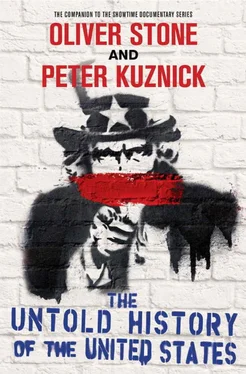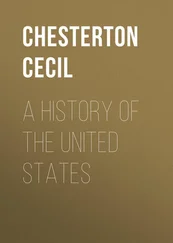As Richard Hofstadter noted over seventy years ago, Wilson’s “political roots were Southern, his intellectual traditions were English.” Among the English thinkers, he was most taken with the conservative views of Walter Bagehot. Bagehot’s influence was apparent in Wilson’s 1889 study The State, in which Wilson wrote, “In politics nothing radically novel may safely be attempted. No result of value can ever be reached… except through slow and gradual development, the careful adaptations and nice modifications of growth.” What he liked about the American Revolution was that, in his view, it wasn’t revolutionary at all. The French Revolution, on the other hand, was an abomination. He deplored Thomas Jefferson’s embrace of revolution in general and the French Revolution in particular. He disapproved of labor and agrarian radicalism and expressed greater sympathy for business than for labor. Overall, Wilson had a deep abhorrence of radical change in any form. 3
Wilson’s hatred of revolution and staunch defense of U.S. trade and investment would color his presidency and influence his policies both at home and abroad. “There is nothing in which I am more interested than the fullest development of the trade of this country and its righteous conquest of foreign markets,” he told the Foreign Trade Convention in 1914. 4
Together these views shaped Wilson’s policy toward Mexico, where American bankers and businessmen, particularly oilmen, had a major stake in the outcome of the revolution. Between 1900 and 1910, U.S. investments in Mexico doubled to nearly $2 billion, giving Americans ownership of approximately 43 percent of Mexican property values, 10 percent more than Mexicans themselves owned. 5William Randolph Hearst alone held over 17 million acres.
U.S. and British corporations had thrived under Porfirio Díaz’s three-decade dictatorship, laying siege to almost all of Mexico’s minerals, railroads, and oil. 6They had reason for concern when Francisco Madero’s revolutionary forces overthrew Díaz in 1911. Many U.S. businessmen quickly soured on the new regime and applauded when Victoriano Huerta, with the support of U.S. Ambassador to Mexico Henry Lane Wilson, ousted Madero in the waning days of the Taft administration. 7But Woodrow Wilson, upon coming to power, not only refused to recognize the new government, whose legitimacy he questioned, he sent tens of thousands of troops to the Mexican border and warships to the oil fields near Tampico and the port of Vera Cruz.
Wilson, who had once voiced a desire to teach Latin Americans “to elect good men,” 8itched for an excuse to intervene directly, overthrow Huerta, and tutor the backward Mexicans in good government. He got what he wanted on April 14, 1914, when U.S. sailors who rowed to Tampico were arrested for being in a war zone without a permit. When the Mexican commanding officer released them a couple hours later, he apologized both to them and to their U.S. commanding officer, Admiral Henry Mayo, who refused to accept the apology in the face of such an insult. Mayo demanded that the Mexican forces give a twenty-one-gun salute to the American flag. Instead, General Huerta added his apology and promised to punish the responsible Mexican officer. Over the objections of Secretary of State William Jennings Bryan and Secretary of the Navy Josephus Daniels, Wilson backed Mayo. He rejected Huerta’s offer of a reciprocal salute by the two sides and asked Congress to authorize the U.S. military to exact “the fullest recognition of the rights and dignity of the United States.” 9Congress eagerly complied. Wilson sent a force of seven battleships, four fully manned marine troop transports, and numerous destroyers to Mexico. When Mexicans at Vera Cruz resisted U.S. seizure of a customhouse, over 150 were killed. Six thousand marines occupied Vera Cruz for seven months.
In August 1914, U.S.-backed Venustiano Carranza replaced Huerta. But Carranza, a staunch nationalist, refused to bargain with Wilson, who then threw his support behind Pancho Villa, beginning a bungled series of political and military interventions into the Mexican Revolution.
While the United States was busy policing its neighbors to the south, far more ominous developments were occurring in Europe. The assassination of Archduke Franz Ferdinand of Austria by a Serbian fanatic on June 28, 1914, triggered a chain of events that, in August, plunged the world into the most brutal orgy of bloodshed and destruction humanity had yet seen. That predominantly European bloodletting—the Great War, World War I—would be only the start of a century of unending warfare and horrific violence, human and technological barbarism on an unimaginable scale, that would later come to be known as the American Century.
The twentieth century dawned with a rush of optimism. War seemed a distant relic of a cruel and primitive past. Many people shared the optimistic belief propounded by Norman Angell in his 1910 book The Great Illusion that civilization had advanced beyond the point where war was possible. Such optimism proved illusory indeed.
Europe was awash in imperial rivalries. Great Britain, with its powerful navy, had reigned supreme in the nineteenth century. But its economic model of cannibalizing the economies of increasing parts of the globe and not investing in its own homegrown manufacturing was failing. Reflecting Great Britain’s ossified social order and lack of investment at home was the fact that, in 1914, only 1 percent of young Brits graduated from high schools compared with 9 percent of their U.S. counterparts. 10As a result, Great Britain was being eclipsed by the United States in terms of industrial production, and, more ominously, its continental rival Germany was competing in the production of steel, electrical power, chemical energy, agriculture, iron, coal, and textiles. Germany’s banks and railroads were growing, and in the battle for oil, the newest strategic fuel that was necessary to power modern navies, Germany’s merchant fleet was rapidly gaining on Great Britain’s. Great Britain was now 65 percent dependent on U.S. oil and 20 percent on Russian and was coveting potential new reserves of the Middle East, which were part of the tottering Ottoman Empire.
A latecomer to the imperial land grab, Germany felt cheated of its due. It intended to right that wrong. Its economic and political penetration of the Ottoman Empire worried Great Britain. It set its sights on Africa. It wanted more.
Other troubling signs appeared. A European arms race was occurring on land and, especially, at sea, where Great Britain and Germany battled for naval dominance. Great Britain’s big-gun dreadnought class of battleships gave it the upper hand—for now. And European nations conscripted young men into vast standing armies.
Entangling alliances threatened to turn local conflicts into global conflagrations. And in August 1914, when Austria-Hungary declared war against Serbia, what looked like a third Balkan war quickly spiraled out of control. The Central Powers—Germany, Turkey, and Austria-Hungary—lined up against the Triple Entente—France, Great Britain, Italy, Japan, and Russia. Others would soon join. The battlefields would run red with blood.
Only Europe’s large socialist and labor parties and trade unions could prevent the slaughter. Many belonged to the socialist Second International. They knew that the most important conflict was between capital and labor, not German workers and their British counterparts. They pledged that if the capitalists went to war, the workers would refuse to follow. Why, they asked, should workers die to enrich their exploiters? Many supported a general strike. The more radical, like Vladimir Lenin and Rosa Luxemburg, vowed, if war started, to overthrow the capitalist regimes. Hopes of stopping the madness rested with Germany, where the Social Democrats were the largest party in parliament, and with France.
Читать дальше












